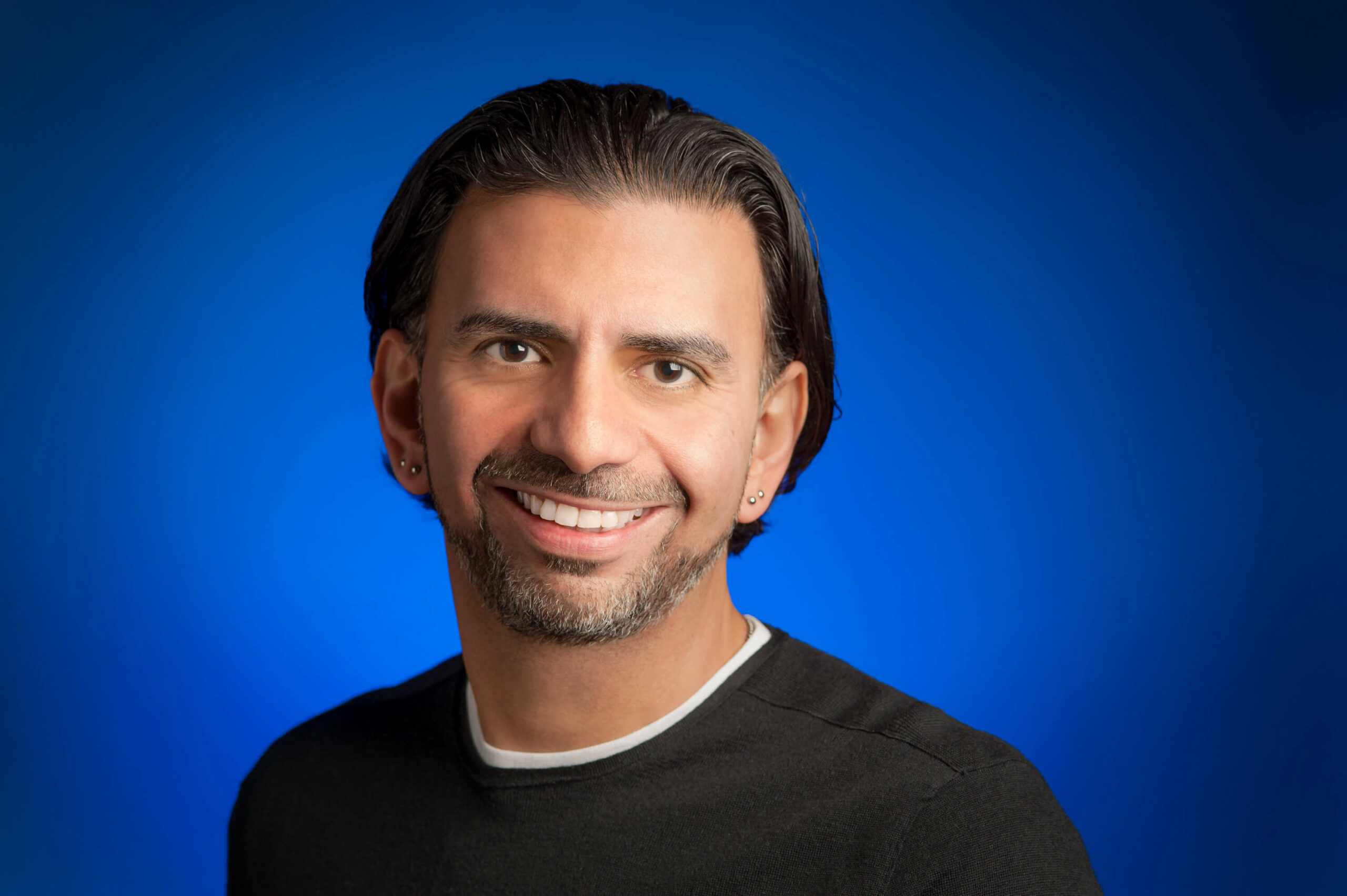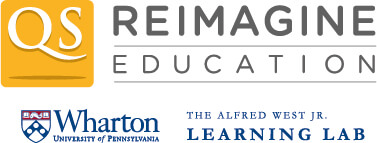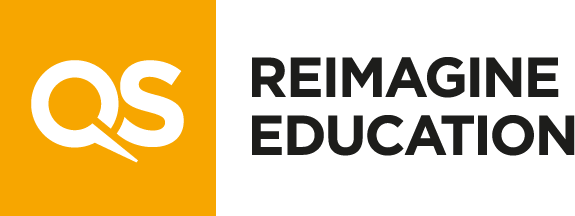REIMAGINE NEWSLETTER: ISSUE 28
PROVING THE POSSIBLE: URBAN YOUTH WALKING IN THEIR EXCELLENCE
As part of an ongoing series introducing our thought-leading speakers from across the world of education, we caught up with Google’s Jaime Casap. In his role as Google’s educational evangelist, he works with schools and school districts to facilitate technology’s transformative power. He’s a regular speaker on the conference circuit and Tedx veteran, speaking on – among other things – the future of work and Generation Z. Here, he speaks about his work at Google, the unique challenges facing that generation, and the way in which the education system needs to adapt for them.
Your role at Google involves “[evangelizing] the power and potential of technology. As far as your day-to-day work is concerned, what does this involve?
I’ve been at Google for 13 years, and I work across all the different teams that are doing things in education at Google, but for the most part I support my teams. We have a whole team of consultants, of people out working on products, and my job is to support them. As an example: the Google Cloud team is working with a university, and the university wants my expertise on how to change some learning models, and I go and help them – or there’s another team member who might be hosting an event, and they want me to come and be the speaker at the event. So my job is to support the team in lots of different ways, but I’m also, besides my role at Google, involved in a number of organisations, including inquiryschools.org, where we focus on bringing inquiry-based learning into learning models across the country.
You’re interacting and collaborating with leaders, school systems, and educational organizations across the country. What outcomes are you seeking to create, and how are you going about doing so?
I’ll start with this idea that if all we do is take technology and put it on top of our current system, then all we’re doing is making the old education system faster and more efficient. What we need to do is to think about the most incredible things we know about what good learning looks like: we know what good learning is, we know that it has to be engaging, and relevant. We know it has to be personal. So the work that I do is focused around working with school districts and school systems and school leaders to do that – to ask a question like: “What’s a great idea that we know of that would work in education, and how do we bring that idea to life using technology?” […] I’m also hopefully, more than anything, helping people change their paradigm, and help them look at education from a different perspective.

Jaime Casap
EDUCATIONAL EVANGELIST, GOOGLE
You also say that you’re aiming to promote “inquiry-driven learning” – what are the benefits of an inquiry-driven learning paradigm, and what changes are required – both pedagogically and structurally – for it to prevail?
The learning model that I’d love to see all schools use is an inquiry-based model, which means that students are driving their learning, but with an actual structure behind that process. We start with engagement, where activities are based on what students are interested in, so the student is actually involved and engaged with the thing that they are discussing, and want to talk about – it’s not the teacher telling the student what to do. There’s a model that we use where we take a lesson template: the first thing that a student needs to do is engage with the topic, then they need to explore that topic through research, and this involves digital skills, so as to ensure that the students know what to do when they’re searching for something, how to vet information, how to know whether the information’s right or wrong, whether it’s real or not. After they explore the topic, then they have to explain it: the students have to construct an explanation of the concepts and the ideas that they learn through their exploration. They do that, and they elaborate, potentially with each other, so they’re working together to create a solution, they’re working together to build on a solution. Then the last thing that they do is evaluation: they evaluate the issue and come up with a recommendation or a problem. So there’s often sort of a problem-solving-based scenario where there’s a problem students learn about; they explore that topic, they explain the topic, they present the topic and their potential solutions, and then they evaluate how they did through the whole process – and they evaluate with each other, so it’s a very collaborative model.
What does excellent inquiry-driven learning look like? What does a lesson or curriculum founded on inquiry-driven learning paradigms involve?
The best way of thinking about it is to look at schools that are doing it well: the one that’s the most popular is the one in San Diego, Hi-Tech High. They’re doing a student-led inquiry-based model, project-based learning – all those words kind of mean the same thing. The other model that I think we should focus on is the school in Philadelphia that Chris Lehmann runs – it’s a number of schools, not just one – the Science Leadership Academy, which is an inquiry-based model. So that’s something that we can explore now and see what they’re doing well, and, again, it’s all the ideas that we’ve just talked about.
Your keynote speeches around the world have also focused on Generation Z. What unique challenges are facing this generation, and how do we need to change the way we educate to equip them to navigate those challenges successfully? Are the changes you’re envisaging evolutionary or revolutionary ones?
Well, I don’t believe anything is revolutionary; I think everything is an iteration of something else. There are no new, no transformational ideas – or, rather, even the most transformational ideas are based on something else, and, as such, I prefer to speak of an iteration-based model. The phone into which I’m speaking right now isn’t a new concept, but an iteration of an older phone, which is itself an iteration of a previous phone, and so forth, and so on. But when I’m talking about Generation Z, I’m talking about those that are born around the Year 2000, that’s the mark that I use, and I think that we can use that as a baseline to mark this generation. So they’re about seventeen years old right now, and they’re focused on a couple of different things, but there’s a couple of different things that we need to understand about them. For example, they’re the first true digital generation. They’re born online, they don’t know what the world looked like before Google, before smartphones, before tablets – you know, they don’t know what the world looked like before wifi, as a matter of fact.
But we also have to look at the social aspects of who they are. For example, I call them the ‘Great Recession Generation’ – they’re the generation that, for the last seventeen years, have seen us dealing with economic issues, and they have watched those economic issues play out: with their parents, who worked hard, did well, and then went out and lost their job. Or their siblings, who went out, and took out $100,000, $200,000 in student debt just to come back and live in their basement.
This generation watched that, so it’s no wonder that 60% of them are worried about work, or 70% of them want to work for themselves: they don’t want that dependency on a job. They want to control their destiny; they want to control their life.The second thing that we have to consider about them is that they’re what I call the ‘9/11 Generation’. They don’t know what the world looked like before 9/11; they’ve watched everything from terrorism happen – nationally, locally, globally; they’ve watched gun violence in schools; they’ve been doing live-shooter drills since they were five years old. This is the world that they know. But on top of that, all they know about the environment is that we are dying; the planet is dying. So they’re what I call the ‘Climate Change Generation’, too, and they become, because of this – because of 9/11, because of terrorism, because of gun violence, because of the environment, because of all these social issues, they become the problem-solving generation.
That’s what they want to do. They don’t want to have a regular job, and even those that do want a job don’t want ‘just any job’ – they want to have an impact, and they want to have a meaningful career, if you will. They care more about their experiences than they do about their moving-up through a company, so I think that we have to look at Generation Z and think about these things – and that’s without getting into, say, demographic issues in terms of what the next generation’s going to look like.
We haven’t defined who the next generation is, the generation of my four-year-old, but you know, if you think about it from a demographics perspective, she is the majority of kids that are going to be around in the next 10, 15, 20 years. She is going to be looking at the world differently.
How is Google at the heart of the effort to reimagine education? Can you articulate Google’s educational vision – and how it is seeking to recognize that vision?
One: the things I’m talking about here in this discussion are mostly my perspectives, my point of view, so I don’t think of things in terms of “what is Google’s vision for education, and how do I bring that to the world?” In fact, I kind of look at it the other way: “What is my vision of education, what is my perspective? What is my subject-matter expertise, and and how do I help Google think about that? How can I potentially use some of the things that Google are doing in that space?” So that’s kind of the way I look at it, and from a Google perspective you have to understand that Google’s been involved in education since the day they launched, right? The first day that Google launched, with its mission of organising the world’s information and making it accessible and useful, that was education – that’s what education is: it’s taking information and making it accessible and useful, and so we’ve always been involved in education whether we like it or not.
Formally, the team is definitely engaged in everything from using our tools, like G-Suite – both in K12, primary and secondary education, and in higher ed; to building tools like Classroom, specifically for higher education – that was the first time that Google had ever built a tool specifically for one industry; or whether it’s devices, like the tablets or the Chromebooks or the phones – and how do we utilise those [devices] as part of the education system, and what can we do to make using those as easy as possible?If you think about a Chromebook, the Chromebook has two basic values. One is the value to the user: cost-effective, easy to use, easy to load up, great battery life, all your stuff gets stored in the cloud, you don’t have to worry about losing anything – all the user benefits of having a Chromebook. But the real benefits are on the administration side: when you try to manage 200 Chromebooks, or 200,000 Chromebooks, the more Chromebooks you add, the easier it is to manage. This is unlike any other device, and so we try to make using technology easy.
We’re also involved in a number of other things in education: whether it’s the Computer Science team, and the programs that they run, like the Summer of Code, or CS First, which teachers can use in elementary school; or it’s the digital team, where the team is trying to make sure that kids are learning how to use these digital tools in effective ways; or whether it’s our programs like some of the things that we’re doing with the science fairs – the Google Science Fairs. So there’s lots of teams. I don’t actually have an official number, but there are thirty-plus teams at Google that have an educational slant to what they do, to help bring our tools and the things that we do into the education space.
What, in your opinion, is the most pressing issue facing the education sector? How can we approach solving it?
The most pressing issue facing the education sector is that the economy is changing, that the world is changing, that we are no longer in an Industrial Revolution Stage. We actually aren’t even in the white-collar stage; we’ve now moved into the digitalisation stage. I’m talking about everything: computer science, machine learning, artificial intelligence, all these things, all these technologies, all the things that are made up of ones and zeros are impacting the entire world: all businesses, all organisations across the board.
We can see this happening in real-time, and I believe that change happens gradually, but then suddenly, and I think we’re in that stage where it happens suddenly. I think the world, from a digitalisation perspective, has been changing gradually, and now it’s changing suddenly. So we have to think about what this means for our students: what is the world going to look like for them, and what are the skills that they’re going to need in that world, where change is happening so quickly?
And you can see that happen in real-time. You walk into a supermarket: we used to have people go through the aisles and put price labels on everything – I remember going in and taking a price off one thing and putting it on something else – but you’d put price tags on everything. Then we’d have electric scanners, so we’ve gone from putting price tags on everything to electric scanners to now scanning things on the belt – and what’s the next phase? The next phase is that this job is so easy that you can do it, because you have self-service checkouts. Amazon and others are building tools where you don’t need to check out anything: you just take things off the shelves and you’ll put them into your bag and walk out of the store.
Consequently, the job for that person working in the supermarket has been changing. It changed real slowly for a while there, from price tagging, to these electric scanners, to helping you with your self-service, to now not needing that at all – so what does that mean? It means jobs are changing, and they’re changing much faster, so you need the ability to be adaptable. This means that we need to focus on the core things that we’ve been attempting to focus on for a very long time – what we call 21st-century skills. Problem-solving, creativity, communication: we all know what those are, we’ve been talking about them for so long that we call them 21st-century skills, and we don’t think about the fact that we’re 19 years into the 21st century.
So those are the things that I think are the most pressing: how do we create the opportunity for our students to be lifelong learners, for them to be problem-solvers, to be folks that can communicate and collaborate with each other, folks that can create things and have original thoughts. So I would say that the priority can no longer be putting information in kids’ heads. That’s no longer what we do; what we do now is help students take all of that information and convert it into intelligence. That’s what we need to focus on, so I think that to me would be a starting point: how do we help kids take all of the world’s information and make it accessible and useful; how do we take all of that information and help kids create original thought?
Jaime Casap evangelizes the power and potential of technology and the web as enabling and supporting tools in pursuit of inquiry-based learning models. Jaime collaborates with school systems, educational organizations, and leaders around the world focused on building innovation into our education policies and practices. He speaks on education, technology, innovation, and generation z, at events around the world.
In addition to his role at Google, Jaime is also the author of “Our First Talk About Poverty,” as a way to talk to children about poverty. He serves on a number of boards for organizations focused on education and equity. Jaime teaches a 10th grade communication class at the Phoenix Coding Academy, a computer science public school he helped launch in Phoenix, and guest lectures at Arizona State University.
He was recently named as the ASU GSV 2018 Innovator of Color and received an Honorary Doctorate of Humanities from Felician University.
You can follow and reach him on Twitter at @jcasap.
At Reimagine 2018, Casap will act as one of our keynote speakers,
Keynote Speech: Reimagining Education for GenZ
9am – 9:35 AM, Nov 30


